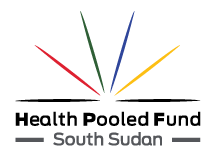HPF Health Specialist talks about breastfeeding and its benefits
Ramula Sulaiman is a registered midwife and works as a Health Specialist for the FCDO funded-Health Pooled Fund (HPF3) in South Sudan. She is a public health professional with over 10 year’s working experience in Family Planning, Sexual and Reproductive Health (SRH), Basic Emergency Obstetric and Newborn Care (BEmONC) Prevention of Mother to Child Transmission (PMTCT), Maternal and Child Health (MCH), nutrition and primary care services.
Ahead of breastfeeding week, we spoke to her about the importance of breastfeeding to both mothers and children.
Qns: What is breastfeeding?
Ans: Breastfeeding is feeding a baby breast milk, usually directly from your breast. It’s also called nursing.
Qns: What is exclusive breastfeeding?
Ans: Exclusive breastfeeding means that the baby or infant only receives breast milk without any additional food or drink. Medical experts usually recommend exclusive breastfeeding for 6 months after which, they can receive complementary foods with continued breastfeeding up to 2 years of age or beyond.
Qns: Why is breastfeeding important?
Ans: Breast milk is the natural first food for babies, it provides all the energy and nutrients that the infant needs for the first months of life.
Breast milk promotes sensory and cognitive development and protects the infant against infectious and chronic diseases. Exclusive breastfeeding reduces infant mortality due to common childhood illnesses such as diarrhoea or pneumonia and helps for a quicker recovery during illness.
For mothers, breastfeeding contributes to their health and well-being; when exclusively breastfeeding, it helps to space children and it is a secure and economic way of feeding since you don’t have to spend money on buying bottles and formula. Breastfeeding also creates a special bond between the mother and child because of the close contact involved.
Qns: How do you support new mothers at HPF supported health centres?
At HPF supported health centres we work with mothers during their pregnancy journey, offering pre-natal services and health education. After delivery, a health worker supports the mother to initiate breastfeeding within the first hour of life. HPF also works with Boma Health Workers (BHWs) in the community provide a continuum of care after the new mother and baby are discharged and reminding mothers to take the babies for immunisation.
